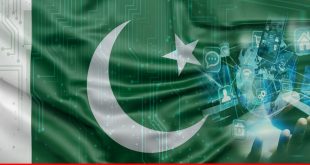Many in the telecom industry have, for years now, been advocating for a reduction in the indiscriminately high telecom taxes. The 2016-17 budget in Pakistan got diverse reactions from the Information and Communication Technology (ICT) industry. It raised taxes on mobile phones. But there was good news for IT sector in the form of tax exemption on software exports with reasonably satisfactory budget for development projects.
The government generated a record high amount of $1.1 billion alone from the sale of 3G/4G spectrum in 2014. PTA sold 10 MHz spectrum recently to Telenor for $395 million. Besides, it also got an additional $39.5 million from Telenor as withholding tax.
Increased taxes on handsets encouraged inrush of grey channel phones in the country that are a serious menace to the national exchequer and security.
According to a GSMA study conducted in 2015, Pakistan stands in the category of the countries that have a very high tax on network usage. It consequently contributed almost 7 percent of total tax in the year 2013.
This sector has also quite high tax for example 30 percent as a proportion of total cost of mobile ownership that when compared with regional peers.
The past telecom and IT sector tax regime with high tax ratio has choked the growth of telecom sector specially the uptake of internet. There was the removal of Activation Tax from 2014. This was tax on the sale of new SIMs being paid by the operators. Now it is imposed on the consumers.
In the 2016-17 budget, the government raised taxes but at the same time offered tax exemption to software exports. There are various types of taxes being collected from the consumers under different tax statutes.
There is increase in sales tax of handsets. The tax on import of smartphones has increased. There is change in the exemption of sales tax on laptops and desktops. It is important to mention here that the amount paid by consumers is directly proportional to the taxes paid by the operators. The higher the taxes on operators, the more taxes are imposed on consumers.
Consumers pay more call set up charges despite the annoyance shown by PTA not to burden the consumer. The mobile companies increased their profitability by increasing their tariffs of call set up charges.
IT companies that are availing the tax exemption will have to remit 80 percent of their revenues to Pakistan through banking channels while they can retain 20 percent of the revenues outside of country for meeting their expenses. 8 percent minimum tax on service provider companies remain the same which was previously to be reduced to 2 percent by the government.
Software industry showed its dissatisfaction on retaining this tax. They believe that that it is actually forcing IT companies to shift their sales to foreign countries in order to evade taxes.
Public Sector Development Program has been allocated Rs1.10 billion for ongoing schemes and new projects for Telecom and Information Technology.
Some of the development projects under the umbrella of PSDP were Rs230 million for Pak-China Fiber Optic Cable. Rs50 million for Pakistan Software Export Board. There was Rs10 million for replacement of GSM network in Gilgit Baltistan and Azad Jammu Kashmir. Also there were Rs50 million for GSM coverage on Karakoram Highway and Rs151. 23 million for technology parks in Islamabad.
This year’s budget did not provide any relaxation to the mobile phone importers. Therefore the consumers have to pay more as the government has raised taxes on the import of mobile phones. The current sales tax rates of Rs500 and Rs1,000 have been doubled and increased to Rs1,000 and Rs1,500 for medium and high-end mobile phones, respectively.
The IT industry expert says high taxation as one of the reason that could result in slowing up the industry to achieve exponential mobile broadband growth. The tax at the import level increases the cost of entry that has negative impact on the growth specially for bringing in new broadband customers.
The tax at the import level increases the cost of entry that has negative impact on the growth specially for bringing in new broadband customers.
The Federal Board of Revenue collected Rs 43 billion on account of withholding tax during 2014-15. Only 0.9 million out of 120 million total users deposited tax return claims and got back what they paid in advance. The remaining amount of more than Rs40 billion was automatically taken by the government at the end of the financial year.
Comparing the last year mobile card recharge tax with this year, one could be easily convinced that mobile taxes are higher than any other of taxes.
Smartphone penetration has doubled to an estimated 35 to 40 percent in less than two years after the start of 3G and 4G services in the country.
The government has imposed new taxes on already burdened mobile phone industry in Pakistan. There was further increase of Rs500 to the existing sales tax on the middle range as well as high-end smartphones.
The total amount of sales tax on a middle range smartphone has reached to Rs1,000 whereas, for a high-end smartphone the tax has grown to Rs1,500.
The mobile phone industry in Pakistan has shown disappointment over the increase of tax and called it the trade killer. Mobile industries legally import some 1.3 to 1.5 million mobile phones every month comprising of feature phones as well as smartphones of various denominations.
The number of legal import has been dropped by almost 35 percent from the monthly number of what industry imported in fiscal year 2014-15.
The demand for mobile phones has not been reduced, but the chunk of smuggled phones has been increased.
In the last year, it was warned that smuggling of mobile phones was expected to rise when government doubled the sales tax on mobile phones from Rs150, Rs250 and Rs500 to Rs300, Rs500 and Rs1,000 on lower, middle and high-end phones respectively.
In January 2016, FBR published a special report on the smuggled goods in which officials of the FBR and customs evaluated that mobile phones topped the list of 11 most smuggled items in Pakistan and contributed 50 percent share in the total value with a loss of worth $4.4 billion.
Government needs to realize that high taxes on the ICT industry will only add to the woes of the users and damage the overall growth of technology in Pakistan. The country was also recently ranked as 6th on the list of top smartphone markets for growth by value.
There is no doubt that the government has recognized the potential of IT industry. Now it has especially worked on the taxation regime this year.
The government needs to comprehend that high tax on the entire ICT industry will only add to the woes of the users while harming the overall growth of technology in Pakistan.
The government further needs to collaborate with the relevant stakeholders in the telco sector so that this sector can be taken to the next level.
 PAGE Blog Business Weekly Magazine
PAGE Blog Business Weekly Magazine

